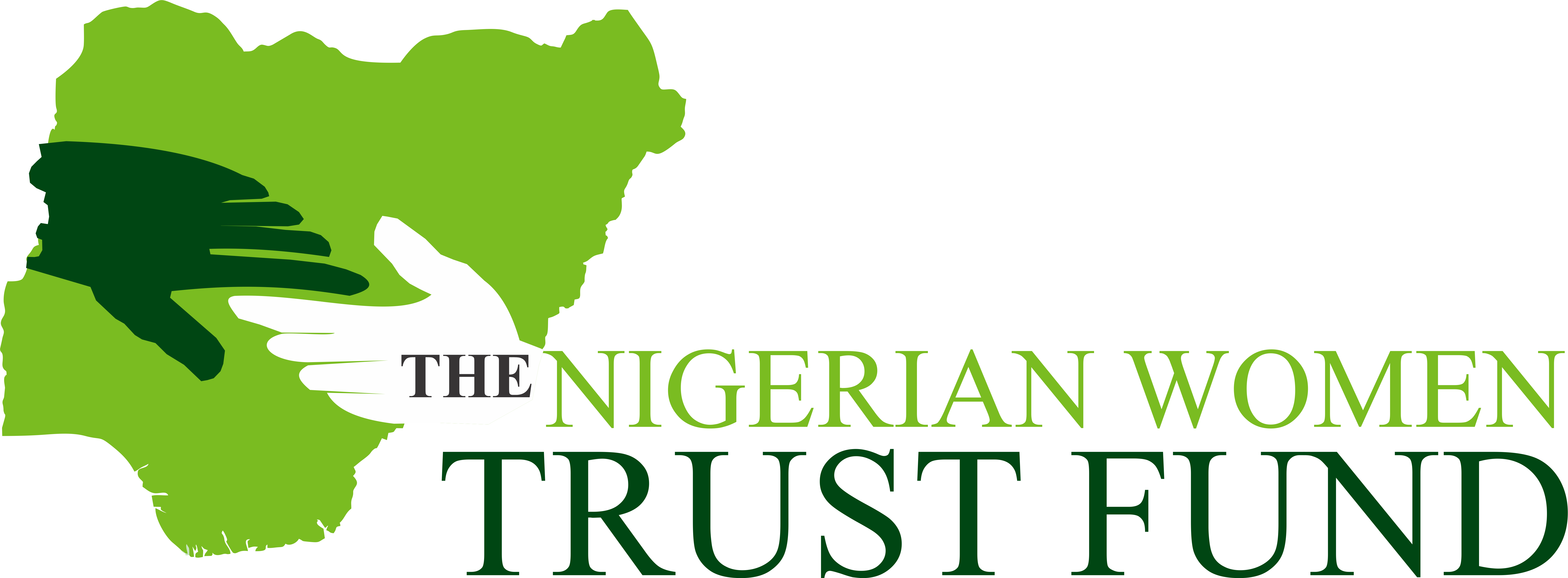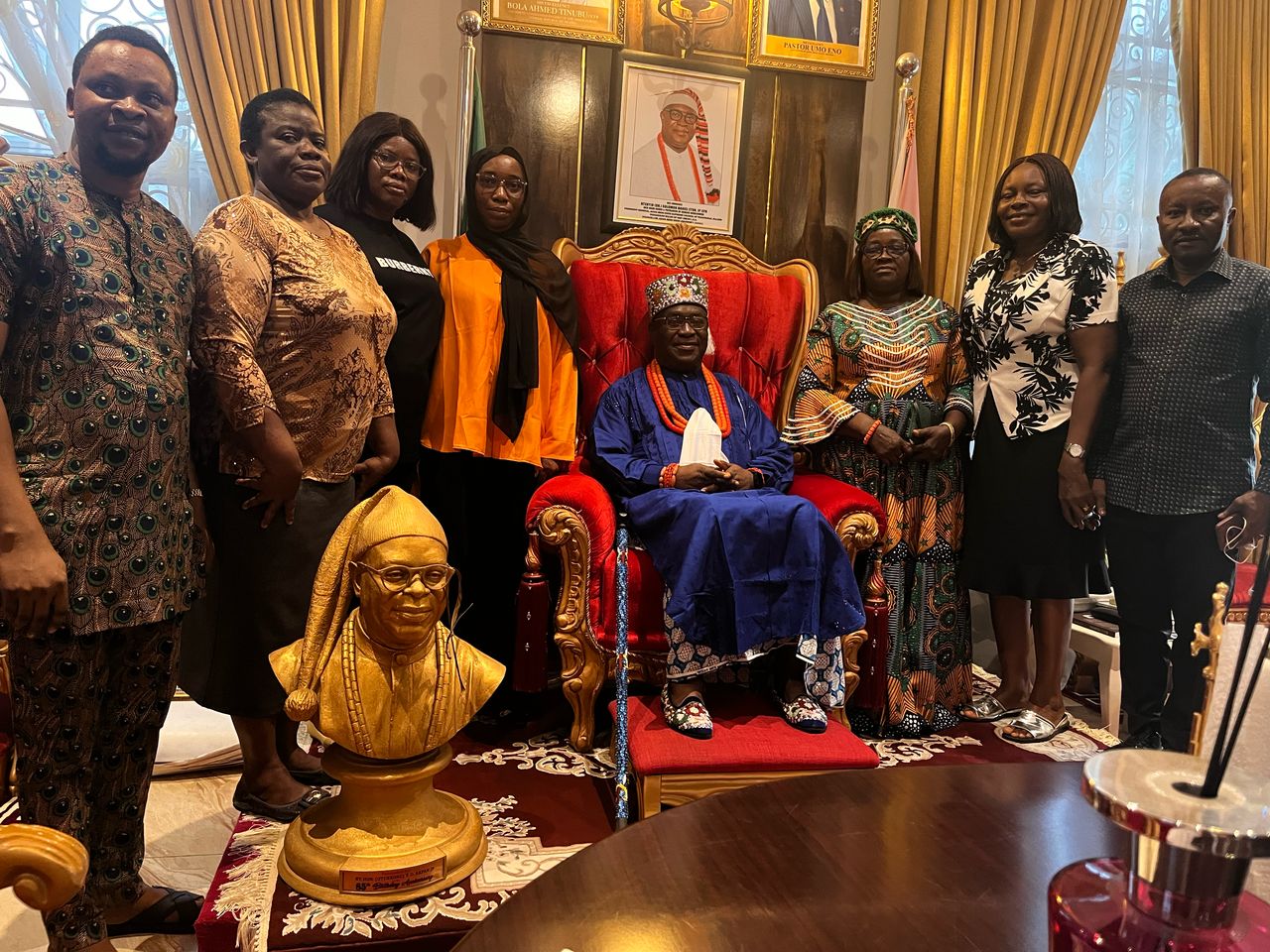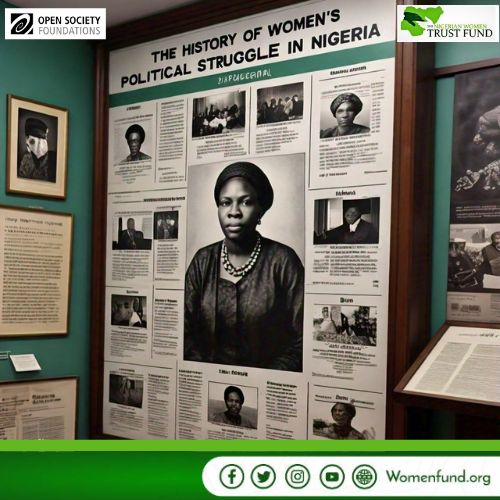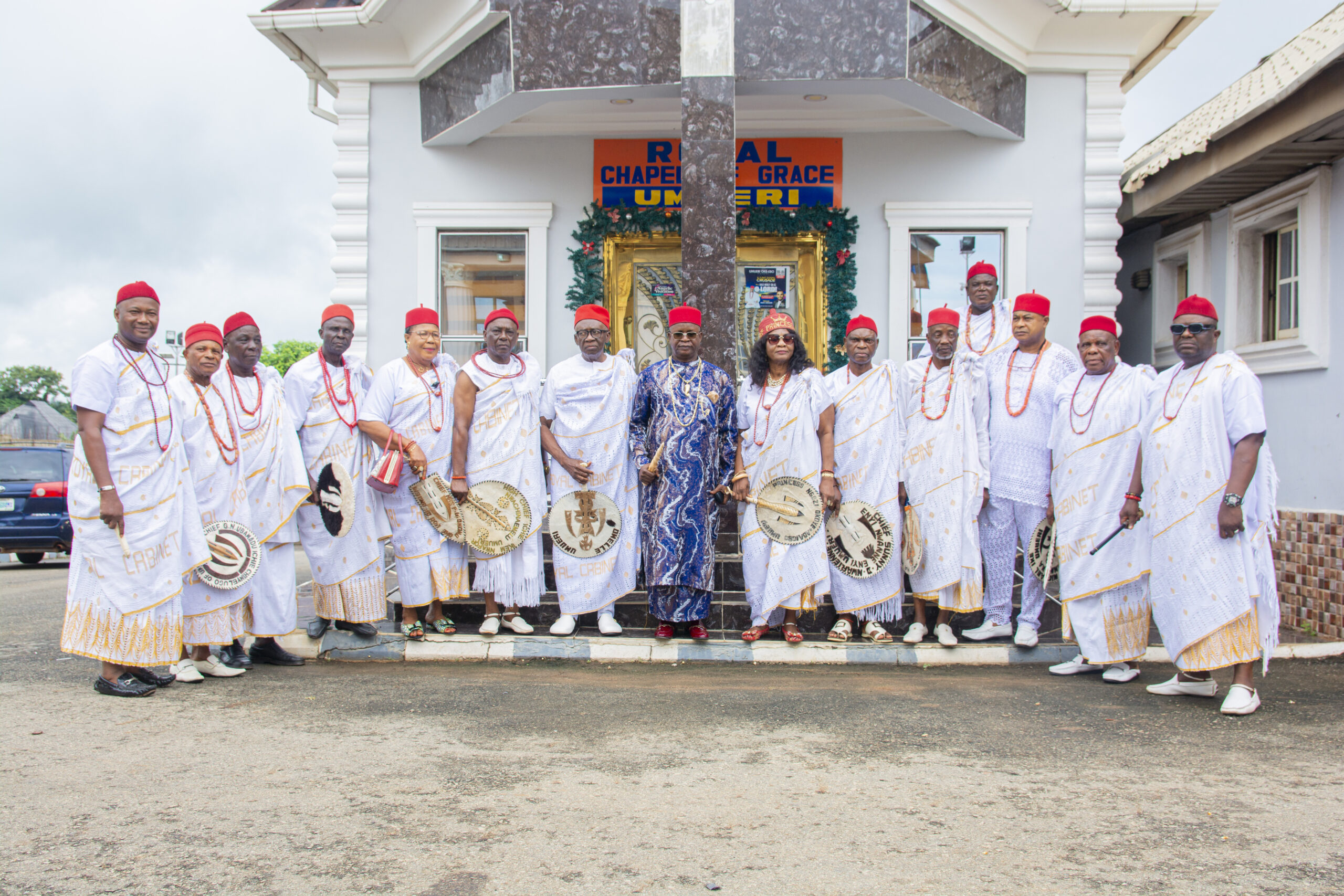
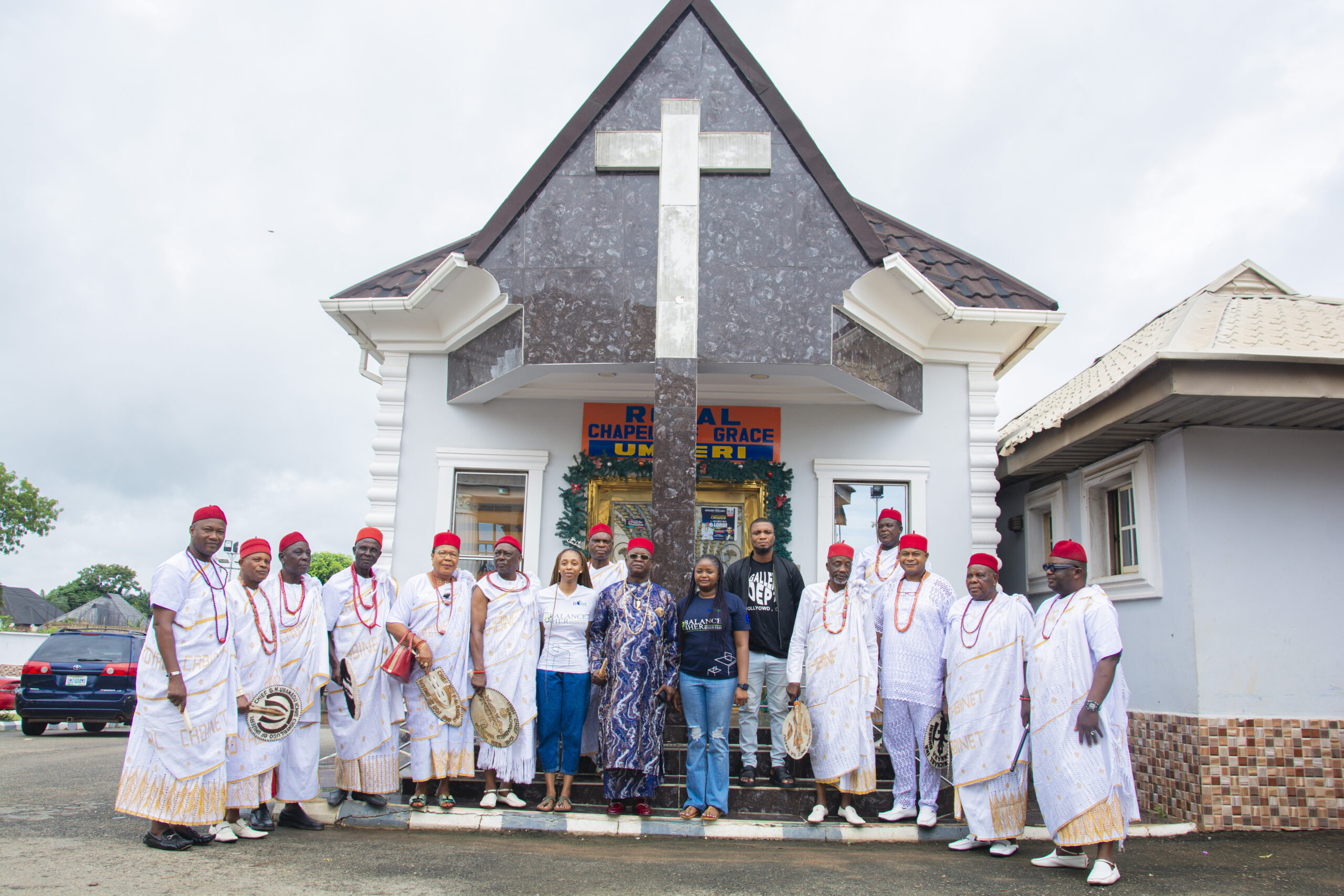
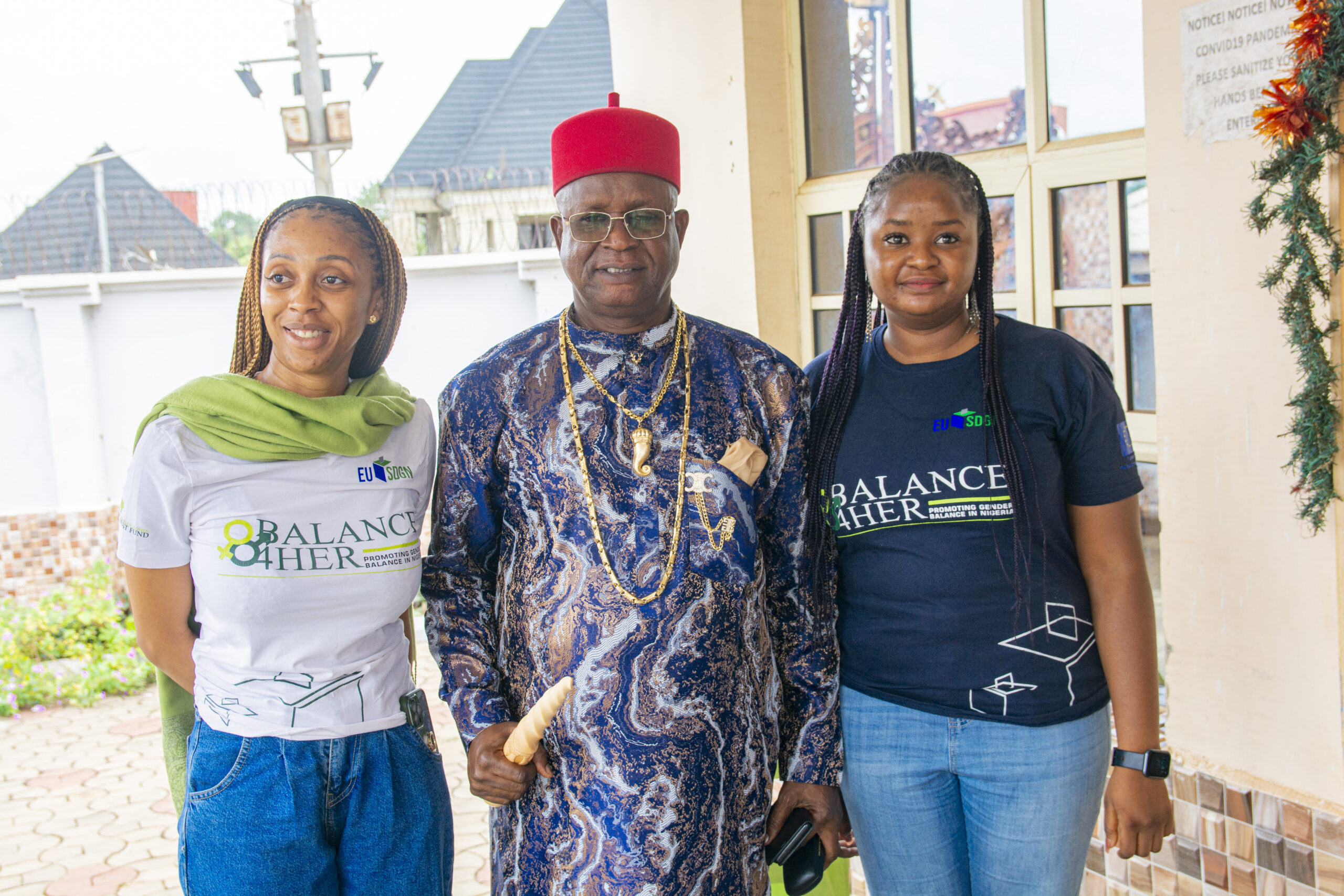
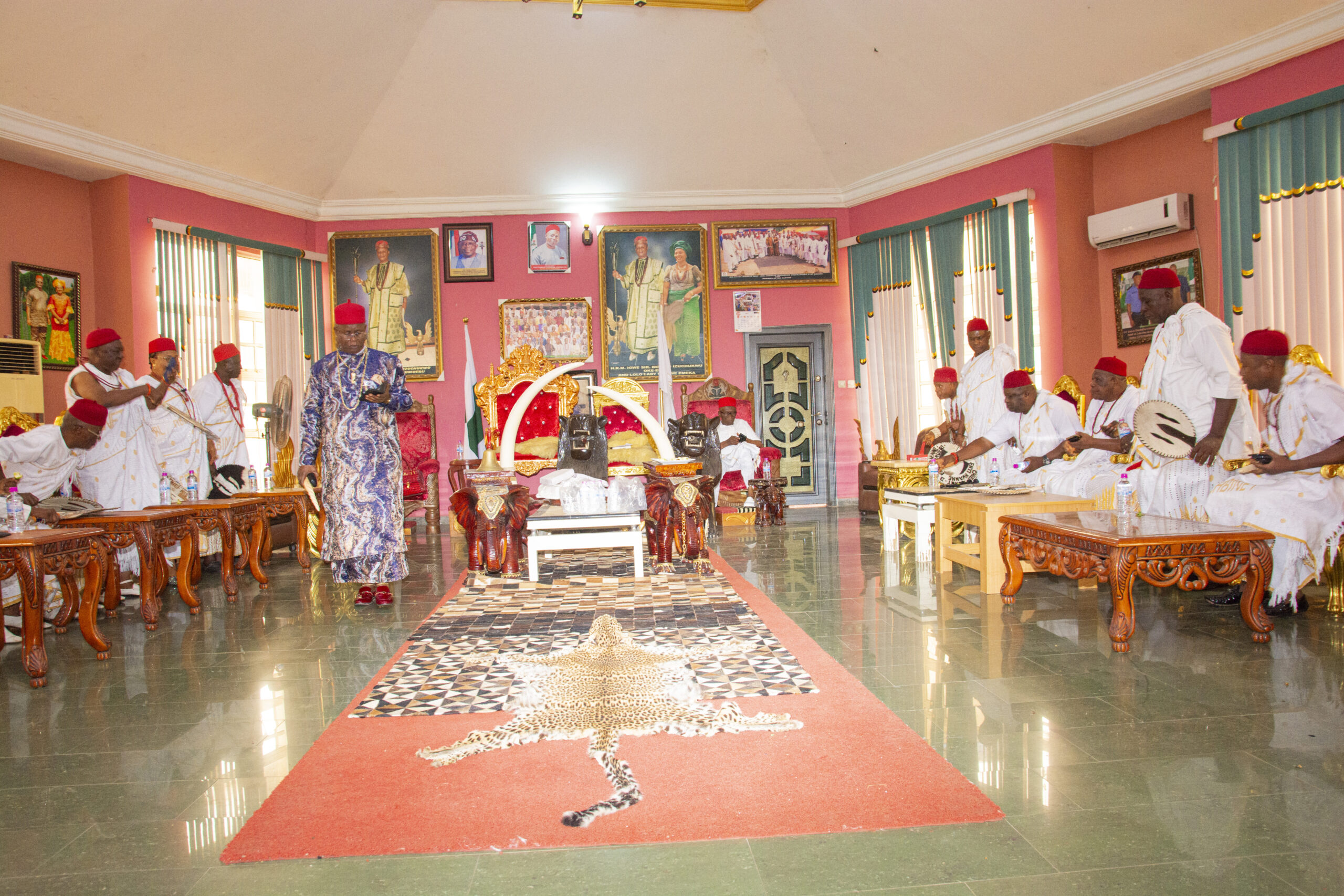
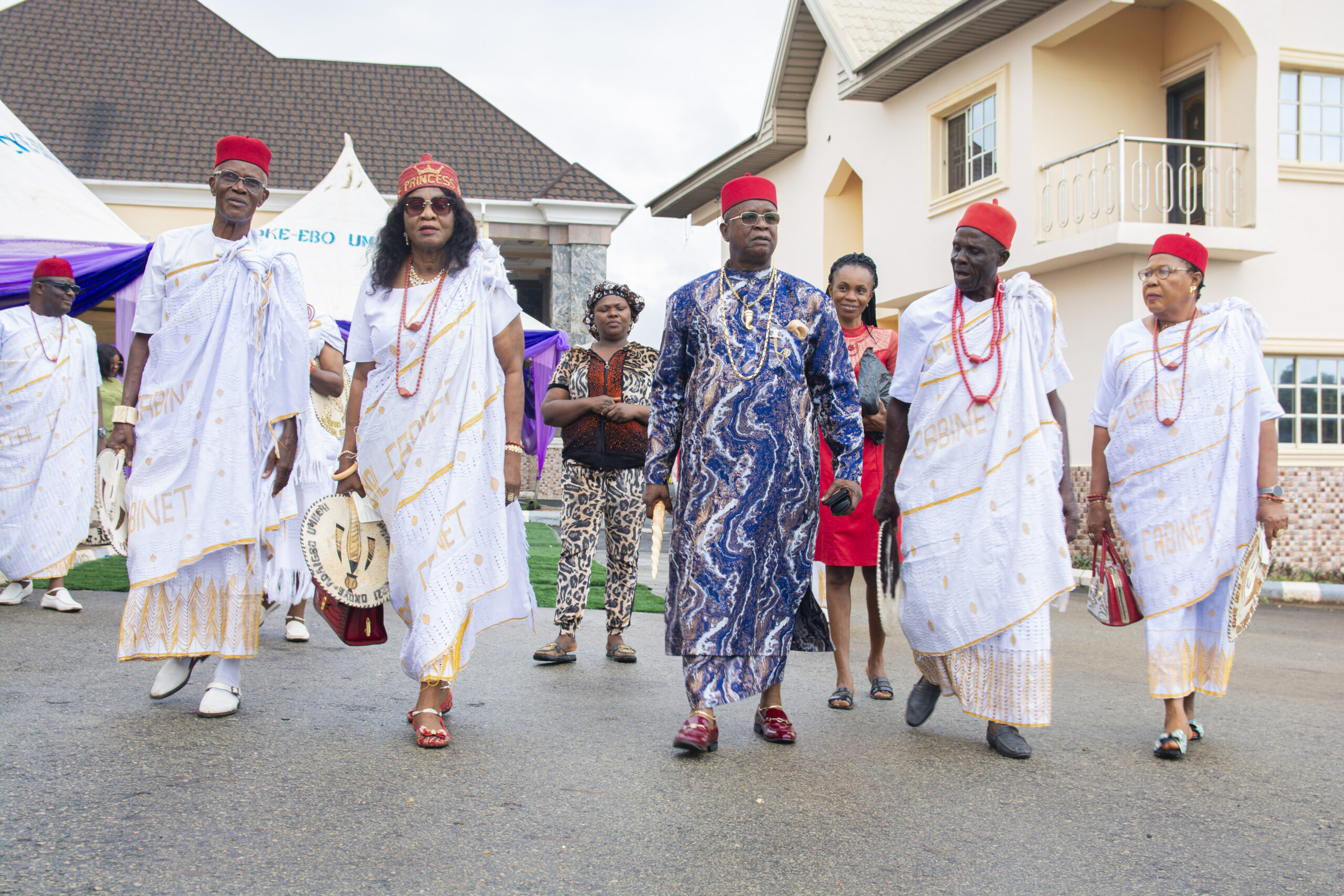
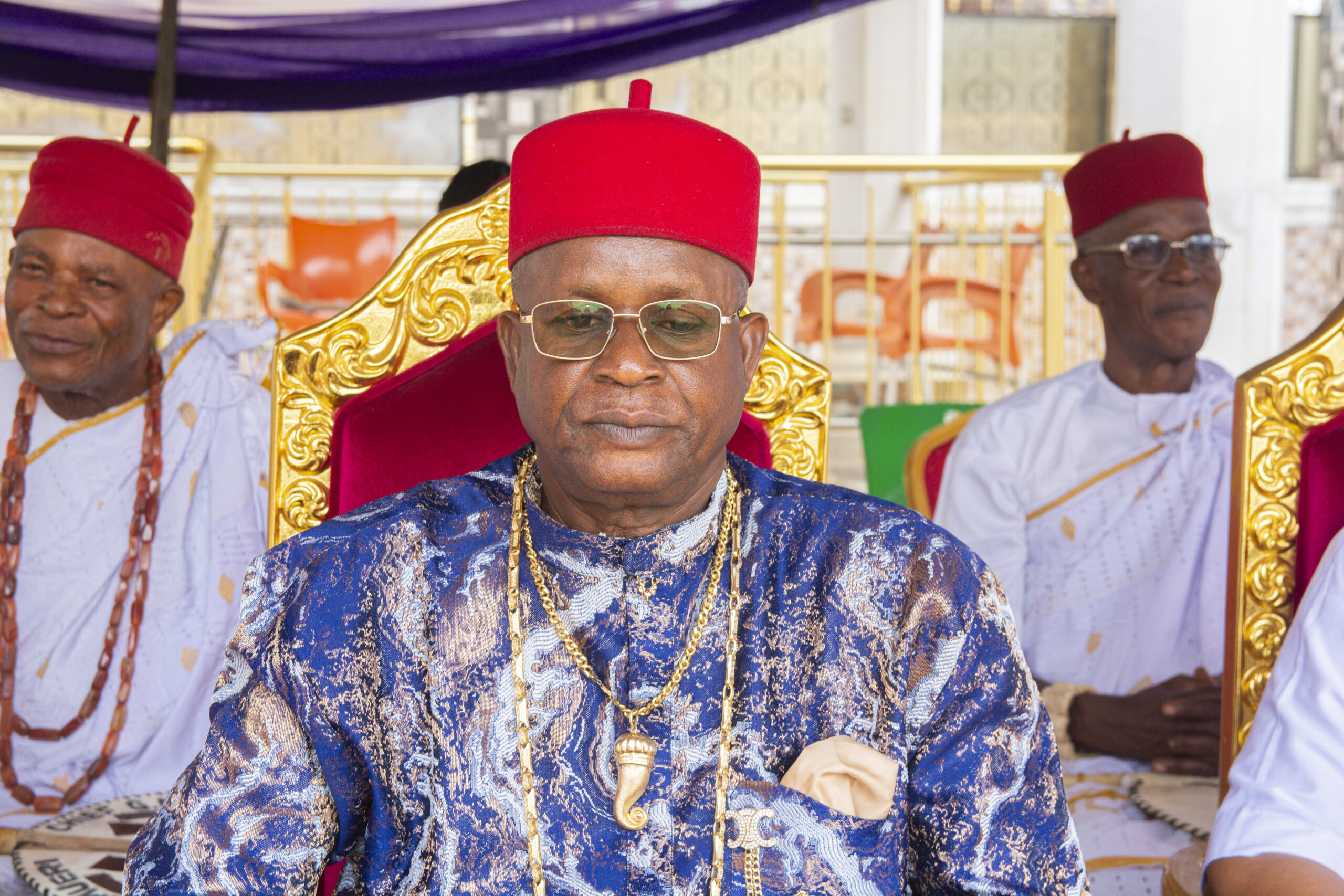
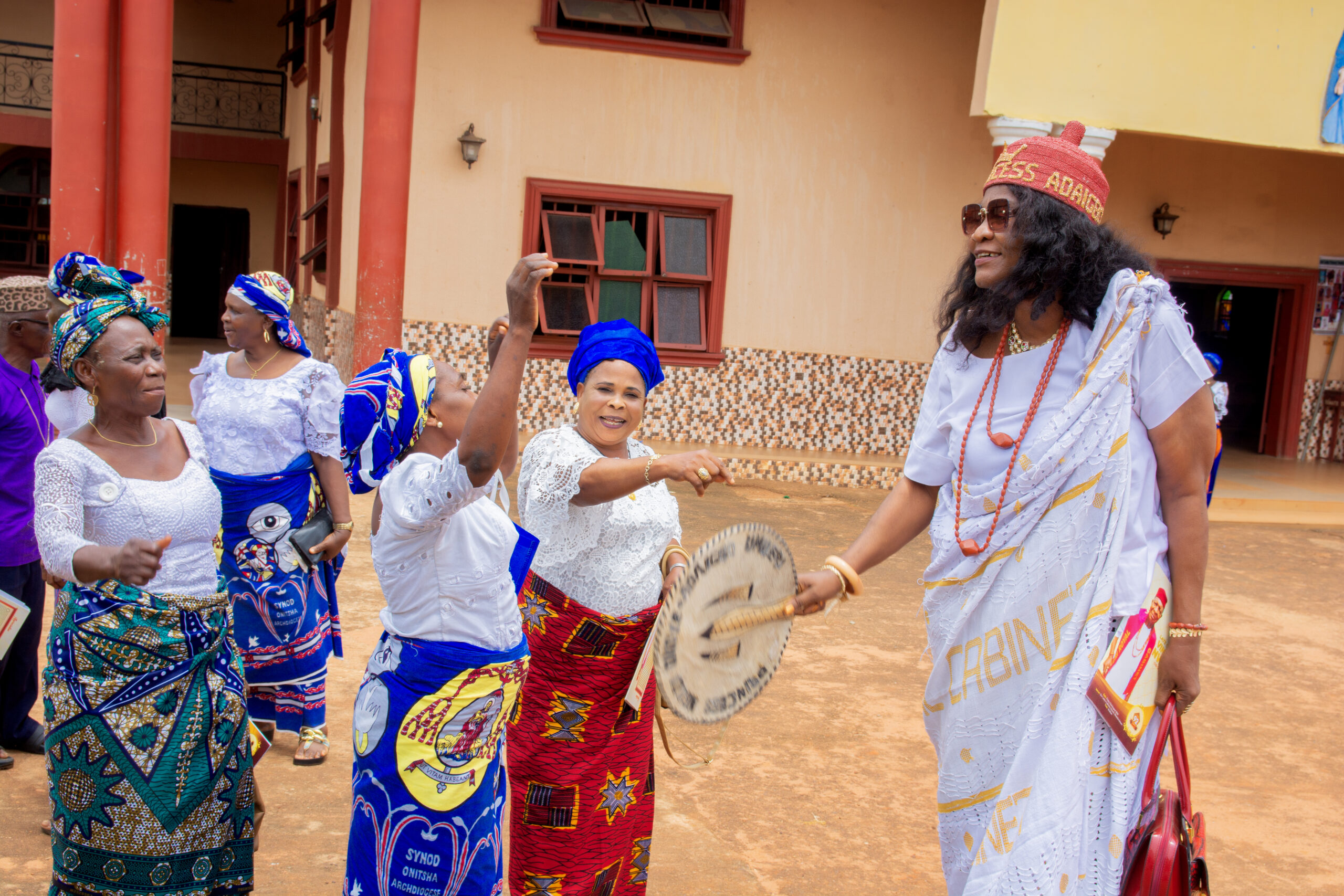
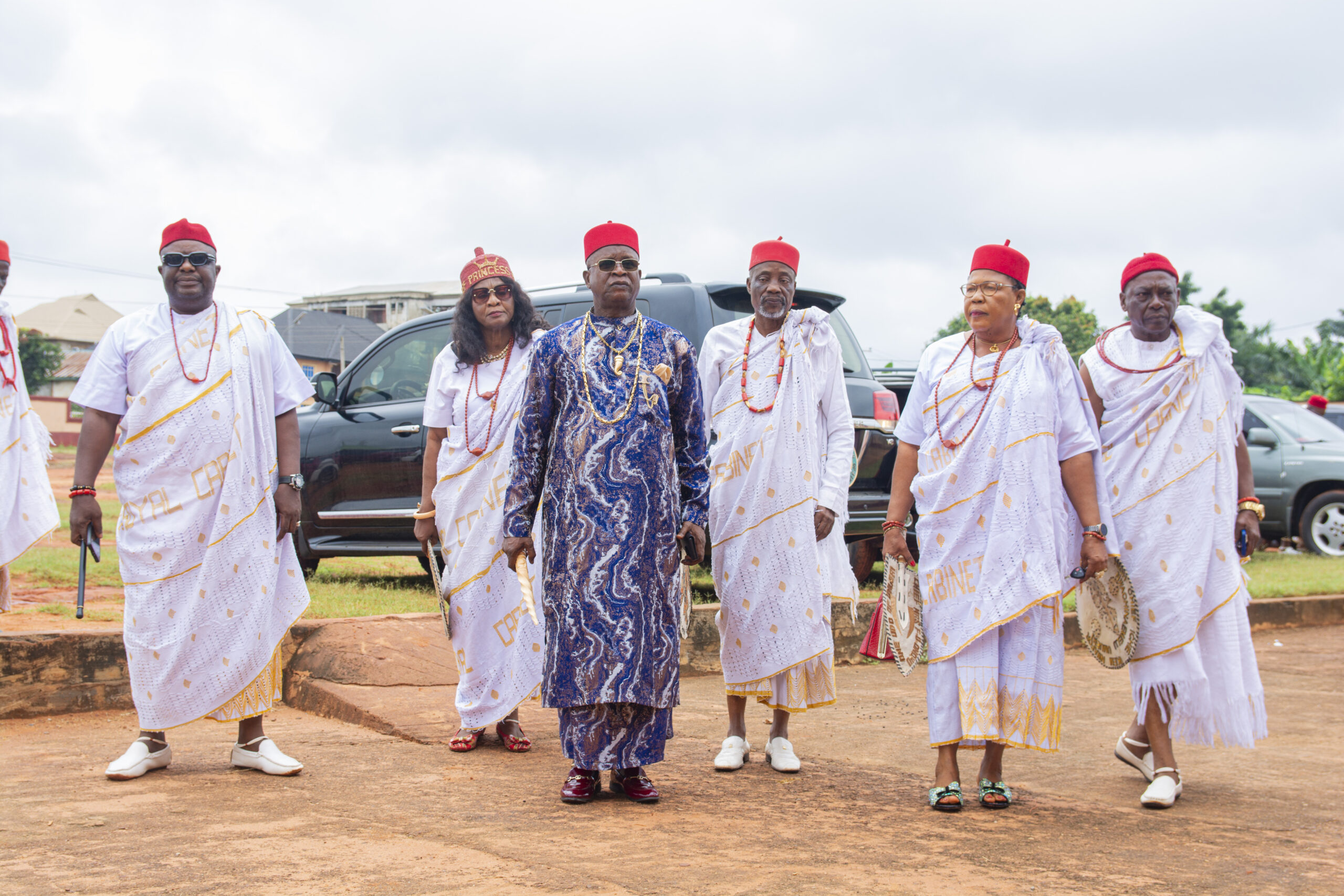
Nigerian Women Trust Fund team at Igwe Okebo II's Palace, Umueri, Anambra State, capturing success stories of Component 5a: Promoting Women's Political Participation under European Union Support to Democratic Governance in Nigeria, highlighting impact on gender inclusivity and women's empowerment.
At the commencement of the EUSDGN II project, the NWTF embarked on a comprehensive series of consultation and harmonization meetings, engaging a diverse range of stakeholders such as traditional rulers, CSOs and religious leaders. These meetings were designed to provide stakeholders with a thorough understanding of the project’s five-year strategic plan while also emphasizing the vital importance of mainstreaming gender considerations into every facet of daily life and governance. The primary goal of these engagements was to cultivate a robust and effective synergy among all parties, ensuring that gender inclusivity becomes an integral part of decision-making processes across various levels of society.
In alignment with this approach, one of the significant milestones was our engagement with Igwe Okebo II of Umueri, Anambra State. Recognizing the influential role that traditional leaders play in shaping societal norms and governance, our meeting with Igwe Okebo II was pivotal in advocating for the inclusion of gender perspectives within traditional governance structures.
Subsequent to our initial discussions, we made a follow-up inquiry to understand the longer-term impact of the stakeholder engagement on his outlook and actions. We were heartened to receive confirmation that although Igwe Okebo II had made a significant and progressive decision to allocate five additional seats for women on his traditional council, recognizing the importance of not only including women but also empowering them in leadership, he appointed one of these women as the council’s secretary—a position of significant responsibility and influence.
This decision by Igwe Okebo II marks a transformative step towards gender equity in traditional governance, reflecting the profound impact of our continuous advocacy and engagement. By reserving these seats for women, the Igwe has not only expanded the representation of women in his council but has also set a powerful precedent for other traditional leaders in the region. This action underscores the effectiveness of our project’s interventions in promoting gender inclusivity and advancing the rights and participation of marginalized groups within governance structures.
The positive changes observed in Umueri serve as a testament to the enduring value of our stakeholder engagement efforts. They highlight how sustained dialogue and collaboration with key leaders can lead to meaningful reforms that align with the broader objectives of the EUSDGN 11 project. As we continue to work towards our goals, this progress reinforces our commitment to ensuring that gender mainstreaming is not just a theoretical concept but a practical reality in communities across Nigeria.
